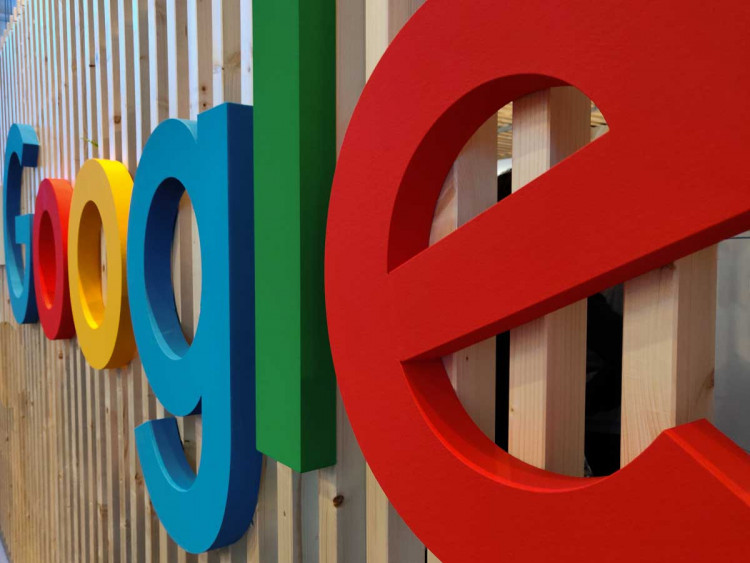Alphabet, Google's parent company, has removed language from its AI principles that previously prohibited the use of its artificial intelligence technology for weapons and surveillance, a move that signals a shift in the company's stance on military applications.
The change was first noticed this week as Google updated its "AI principles," a set of guidelines originally established in 2018 following backlash from employees over the company's involvement in Project Maven, a U.S. Department of Defense initiative that used AI to analyze drone surveillance footage. At the time, Google bowed to internal pressure and did not renew the military contract, pledging that it would not develop AI weapons.
Now, that commitment has been quietly removed, with no section in the AI principles explicitly outlining which applications Google will not pursue. Instead, the revised guidelines focus solely on how Google will responsibly develop AI, emphasizing "rigorous design, testing, monitoring, and safeguards."
Google Positions AI as a National Security Asset
Defending the policy update, Demis Hassabis, head of Google's AI division, and James Manyika, the company's senior vice president for technology and society, wrote in a blog post that AI development should align with democratic values.
"We believe that companies, governments, and organizations sharing these values should work together to create AI that protects people, promotes global growth, and supports national security," they stated.
Google's shift mirrors a broader trend in the tech industry, where companies like Microsoft, Amazon, and OpenAI have actively partnered with defense agencies.
- Microsoft has signed multi-billion-dollar contracts with the U.S. Army to supply augmented reality combat goggles.
- Amazon Web Services (AWS) provides cloud computing for the Pentagon and U.S. intelligence agencies.
- OpenAI has supported AI-driven defense applications and recently introduced "Operator," a tool that can automate complex tasks, including web-based operations.
Google's removal of explicit AI restrictions suggests the company is re-engaging in the national security space, a move that could spark internal debate among employees who previously protested such initiatives.
Ethical Concerns Over AI Weaponization
The decision to eliminate the "AI applications we will not pursue" section has raised concerns about the lack of transparency regarding how Google will approach military contracts.
While the company insists that it will uphold ethical AI development through "appropriate human oversight", critics argue that without a clear red line, there is no concrete accountability in how Google's AI might be used.
The removal of prior commitments opens the door to potential AI weaponization and surveillance applications, according to industry analysts. British computer scientist Stuart Russell has previously warned against the development of autonomous weapons, calling for international oversight to prevent the misuse of AI in military operations.
In 2018, thousands of Google employees signed a petition opposing Project Maven, arguing that Google should not be in the business of "warfare AI." The backlash led the company to implement its original AI principles, which explicitly rejected AI applications for weapons and mass surveillance.
It remains to be seen whether Google's workforce will react similarly to the recent change.
Google's AI Investment and Market Pressures
The update to Google's AI policy comes as Alphabet faces mounting competition in AI development and increased financial pressure to expand its AI capabilities.
Alphabet's stock dropped 8% this week following a weaker-than-expected earnings report, with revenue reaching $96.5 billion, slightly below Wall Street expectations.
To stay competitive, Google announced plans to spend $75 billion in capital expenditures in 2025, largely to scale its AI infrastructure and compete with Microsoft and OpenAI.
Evelyn Mitchell-Wolf, a senior analyst at eMarketer, noted that "Cloud's disappointing results suggest that AI-powered momentum might be beginning to wane just as Google's closed model strategy is called into question by DeepSeek."
DeepSeek, a Chinese AI startup, has emerged as a low-cost challenger to U.S. AI firms, raising concerns that Google, Microsoft, and OpenAI may need to accelerate their AI investments to maintain leadership in the sector.
What Happens Next?
With the U.S. government actively seeking AI collaborations for national security, Google's softened stance may position it to re-enter the defense AI market, joining its competitors in the race to develop military AI applications.
However, the decision could spark internal dissent similar to what occurred in 2018.
Google has not explicitly announced new military AI projects, but with no official ban in place, the company now has greater flexibility to engage in government and defense contracts.






